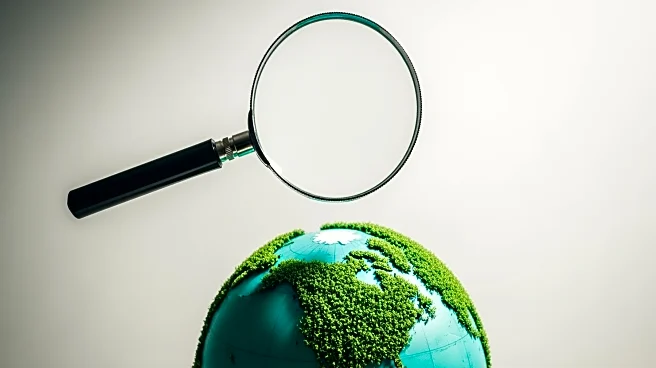What's Happening?
A recent article highlights the strategic importance of investing in independent journalism, particularly in the context of environmental and conservation efforts. The piece argues that while significant
funds are allocated to energy transition and climate adaptation, a minimal fraction is directed towards independent reporting, which is crucial for ensuring transparency and accountability. The article cites examples such as the United Cacao case in Peru, where investigative journalism revealed deforestation under the guise of sustainable practices, leading to significant environmental protection actions.
Why It's Important?
The role of independent journalism is emphasized as a critical component in safeguarding environmental investments. By exposing hidden risks and ensuring transparency, journalism can prevent inefficiencies and corruption in environmental projects. This not only protects natural resources but also enhances the effectiveness of philanthropic and governmental efforts in climate and biodiversity initiatives. The article suggests that supporting journalism is a high-leverage investment that can yield substantial returns in terms of environmental and societal benefits.
What's Next?
The article suggests that philanthropists and organizations should consider long-term, flexible funding models for journalism. This includes supporting investigative teams, local correspondents, and data tools to enhance the reach and impact of reporting. By doing so, journalism can continue to play a pivotal role in informing public policy and fostering accountability in environmental and civic actions.
Beyond the Headlines
The piece explores the broader implications of journalism as a form of civic infrastructure. It argues that informed scrutiny can redirect entire trajectories in environmental and social governance, highlighting the need for sustained investment in independent reporting as a means to empower communities and ensure responsible governance.









